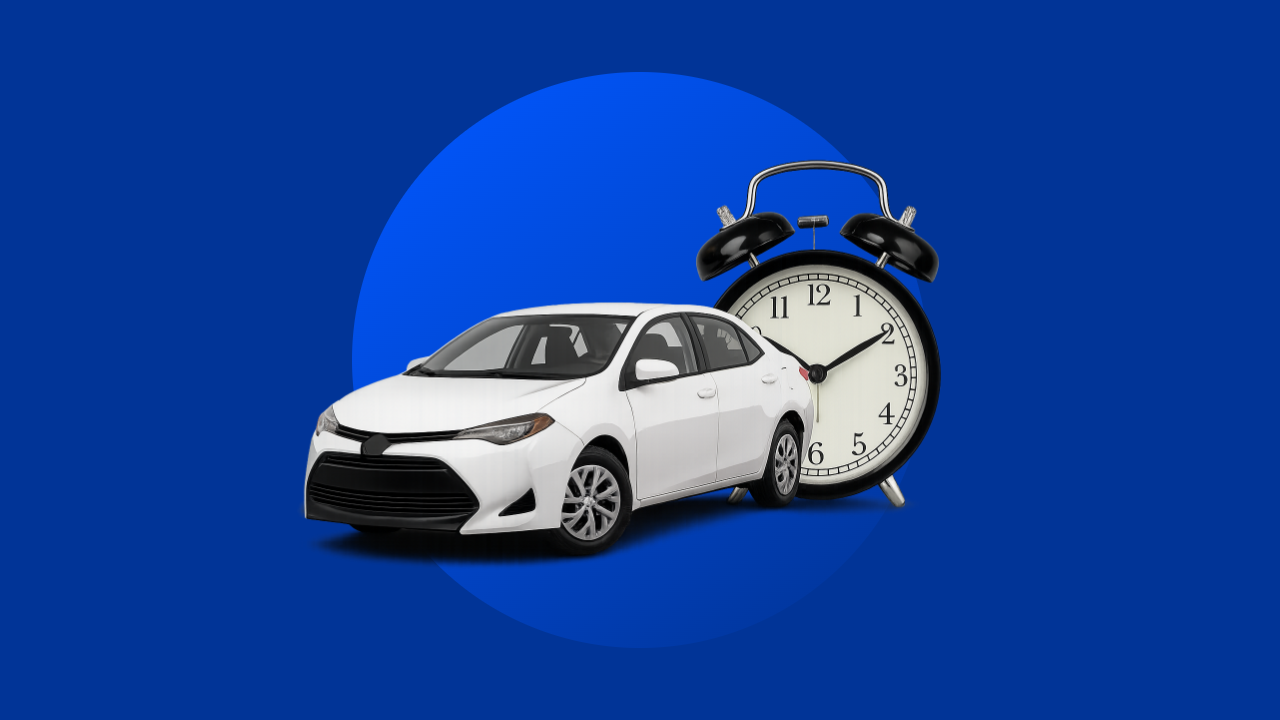Key takeaways
- Paying off a car loan early may help save money on interest, though the true savings depend on the type of loan you have.
- Early loan payoff can also give you ownership of the vehicle sooner and reduce the risk of being upside-down on the loan.
- Before deciding to pay off your loan early, consider whether your money could be better spent elsewhere.
In the short term, paying off your car loan early will impact your credit scores — usually dropping them by a few points. The short-term effects only last so long, and over the long term, your credit scores may rise because you’ve reduced the amount of debt you owe.
That said, whether it makes sense to pay off a car loan early depends on your budget, the loan’s interest rate and your other financial goals. Generally, you should pay off a car loan early if you don’t have other high-interest debt or pressing expenses to worry about.
Should you pay off your car loan early?
There are a few scenarios where it makes sense to focus on eliminating your auto loan debt. If one of these scenarios applies to you, paying off your loan early could be a good idea:
- You don’t have higher-interest debt and want to free up room in your budget for other financial goals.
- Your auto loan has a higher interest rate than you could earn by investing — and you already have an emergency fund or other savings to rely on.
- You’re hoping to buy a home soon and want to lower your debt-to-income ratio.
- You recently received a windfall and would have enough cash in reserves for emergencies even after paying off the auto loan.
- You want to avoid negative equity or being upside-down on your auto loan.
- You’re debt-averse and eliminating your auto loan is an important step in obtaining financial security.
Benefits of paying off a car loan early
If you can manage it, paying off a car loan in full ahead of schedule can have some significant benefits.
Save money on interest
Interest is typically spread out over the loan term. Paying off your loan early will save you interest since the lender will have less time to collect it. The more money you add to your payments and the higher your loan amount, the more you can save.
Paying off your car loan in a lump sum will save the most in interest, but even an extra payment here and there can make a difference. When you make an extra payment, specify to your lender that it is a principal-only payment so the extra amount goes directly toward the amount you owe and not interest.
Own the vehicle sooner
Owning your vehicle outright means it’s easier to sell the car or trade it in when the time comes. Until you pay off your car loan, the lender technically owns your vehicle. When you repay the loan in full, you’ll receive an updated title in your name, without the lienholder.
Paying off your car may also mean that you can reduce your auto insurance costs. Many auto lenders require you to carry full-coverage auto insurance to protect your car. When there is no longer a lien on the vehicle, you can switch to liability-only insurance for a reduced cost. But remember: It’s a good idea to keep the protection if you can’t afford to replace your vehicle in case of an accident.
Less risk of being upside-down
Sometimes cars depreciate faster than the payoff schedule of an auto loan. This is especially true if you have a long repayment term or a high interest rate.
Being upside-down on a loan, or owing more on the car than it’s worth, is a tricky situation. You may run into problems if you try to sell or trade in the vehicle, since you won’t earn enough to pay off the loan. Similarly, if the car is totaled, the insurance payout may not cover your debt.
The faster you pay down your auto loan balance, the less risk you run of becoming upside-down on your loan.
Improve your debt-to-income ratio
Your debt-to-income (DTI) ratio is how much money you spend each month on your debt. It helps lenders determine how much you can afford to borrow without stretching your budget to its breaking point. The higher your DTI, the riskier you look as a borrower.
Paying off your car early eliminates your auto loan from the equation. Your DTI ratio will drop, which can improve your chances of qualifying for other loans or consolidating credit card debt at a lower rate.
Free up money for other expenses
The average monthly payment on a new car was $749 in the second quarter of 2025, according to Experian’s quarterly report. Used cars were more affordable, but the average monthly payment was still a budget-busting $529.
Paying off your car loan ahead of time frees you up to make progress on other financial goals. If you keep the car you have and don’t take out another loan, you can put that money toward vacation savings, retirement funds or other debt.
Disadvantages of paying off a car loan early
Prepayment penalties and closing accounts may impact your finances. While there are pros to accelerating your auto loan payments, there are also some potential downsides to keep in mind.
Possible prepayment penalties
Some lenders charge a fee called a prepayment penalty for paying off a car loan early or making extra payments, but they areare uncommon. If your lender does charge a penalty, compare your potential interest savings with the cost of the fee. It may reduce your overall savings, but if you’re able to pay less interest overall, it may still make sense to pay your auto loan off early.
Lower credit scores
When you make the final payment on a loan, you’ll stop earning credit for making on-time payments. Plus, your credit mix could be affected since credit bureaus like to see both installment loans, like auto loans, and revolving lines of credit like credit cards.
But don’t let the fear of a small credit score drop hold you back from paying off your auto loan early. This potential dip is usually slight and temporary, and if you continue to manage your credit accounts responsibly, it shouldn’t have a meaningful effect.
Money better spent elsewhere
If you have higher-interest debt, you may be better off focusing your efforts on those loans or credit cards first. That’s especially true with credit cards, certain personal loans and short-term debt. Consider the APR and fees you’re paying on your other debt, compared to what you pay on your auto loan.
Even if you don’t have high-interest debt, your money may be more effective if put toward retirement, a Health Savings Account or some other tax-advantaged financial account. The same may go for general investing if your auto loan interest rate is low.
May not fit in your overall budget
If your budget is tight, finding extra cash to put toward your auto loan payment each month may be impossible. Even if you can cut back on certain expenses, other areas of your financial life (such as paying down high-interest debt, saving for retirement and building an emergency fund) may be more important.
Before deciding to pay off your loan ahead of time, examine your budget and make sure it won’t place you in an even more precarious situation.
What happens when you pay off your car?
Paying off your auto loan early is a huge step. These are a few things to expect after kicking this debt to the curb.
- Title transfer. Once your car loan is paid off, the lender is required to release its lien on your vehicle’s title. Depending on where you live, your state’s titling agency will mail you a copy of your updated title, or you may need to request it.
- Updates to insurance. You’ll also need to notify your insurance provider that you paid off the loan. Paying off your car loan to the curb early gives you the option to drop from full-coverage insurance to liability-only insurance.
- Impact on your credit score. Keep in mind that paying off your loan early can temporarily lower your credit score by a few points. However, your score will likely bounce back as you continue to make on-time payments on any other debts.
How to pay off a car loan early
Depending on how much money you have on hand, there are three ways you can work toward paying off your car loan ahead of schedule.
1. Pay it off in full
If you received a big bonus at work or a sizable tax refund, or simply want to use the money you’ve been saving, you can make a lump-sum payment to pay off your car loan in full.
Start by calling your lender to determine the 10-day payoff amount, which includes interest that’s accrued since your last monthly payment. Then send a check to the lender or make an online payment to bring the balance to $0.
2. Pay down the balance
If you don’t quite have enough money to pay off the entire balance, you can still make a large payment to pay down a big chunk of it. This won’t reduce your monthly payment, but it will move your paid-in-full date up, meaning you’ll be out of debt sooner. And since it will go toward the principal, you’ll pay less interest overall. Be sure to indicate that the money should be applied to the principal balance.
3. Increase your monthly payment
If you don’t have a chunk of cash to put toward your auto loan, consider making larger payments each month instead. The more you pay each month, the faster you’ll pay off your loan — but even a small amount of extra money can save you on interest.
Bottom line
Paying off a car loan early can save you money — provided the lender doesn’t assess a large prepayment penalty and you don’t have other high-interest debt. Even a few extra payments can go a long way to reducing your costs.
Before rushing to repay your auto loan, run the numbers to determine whether it makes financial sense or if you should apply extra funds elsewhere. Early payoff is not the only route to lower costs. Refinancing your current loan can help you secure a manageable monthly payment.
The key to success is to keep your financial situation and goals in mind as you weigh the benefits and drawbacks to determine the best strategy for you.
Frequently asked questions
Why we ask for feedback
Your feedback helps us improve our content and services. It takes less than a minute to
complete.
Your responses are anonymous and will only be used for improving our website.
Help us improve our content
Read the full article here
















